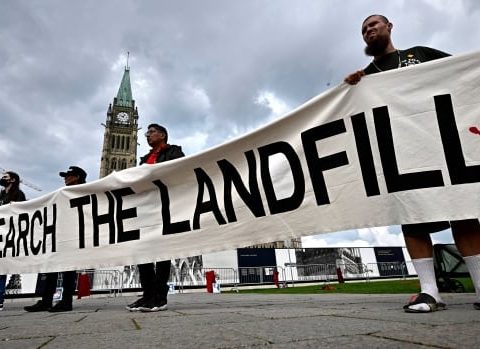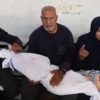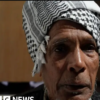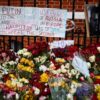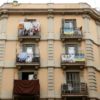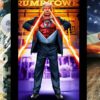Conservative Leader Andrew Scheer said today the federal Liberal government should take a harder line with China going forward, and accused it of displaying weakness in the face of aggressive moves by Beijing.
Speaking to reporters on Parliament Hill, Scheer said Prime Minister Justin Trudeau also should demand greater accountability from the World Health Organization (WHO), a body that some accuse of being beholden to the Chinese.
Scheer said that, to this point, the Liberal government has followed a “policy of appeasement” with China. He said the government has done little to secure the release of Canadians Michael Kovrig and Michael Spavor, detained during the diplomatic fracas over the arrest of Huawei executive Meng Wanzhou last year.
“Don’t be fooled by Mr. Trudeau’s phony statements about China right now. We have been raising the alarm about this government’s failure to stand up for Canada and its policy of appeasement to the regime in the People’s Republic of China,” Scheer said.
Scheer called for an immediate end to federal funding for the China-led Asian Infrastructure Bank and investigations into unspecified Chinese exports to prove to the regime “there are consequences for illegally detaining two Canadians and pushing Canada around. Justin Trudeau has refused to do that. He refused to do it.”
He said Canada’s recent push to secure a place in WHO deliberations for Taiwan — a country the People’s Republic of China sees as a breakaway province — is motivated by politics rather than principle.
Canada backed an international coalition (including the United States, Japan, Australia and others) in calling for Taiwan — which has fared better than other countries during the pandemic — to be given observer status at a major WHO meeting yesterday. The WHO ultimately refused to invite Taiwan.
“It’s only now after they see some polling data that they’ve started to change their message on that,” Scheer said of the Taiwan push. “It’s only in the last couple of weeks that he’s changed his message at all and I believe it’s completely disingenuous.”
Watch: Conservative Leader Andrew Scheer’s press conference
Trudeau and other cabinet ministers have been careful to avoid levelling criticism at China throughout this pandemic.
Canada’s supply chain of personal protective equipment is heavily dependent on Chinese manufacturers, some of which are controlled by the state. Canada’s manufacturing sector doesn’t have the capacity to meet the current demands for the medical equipment.
Asked about the WHO Tuesday, Trudeau said Canada supports multilateral institutions like this UN agency. He said no international organization is “perfect” and Canada’s bid for a UN security council seat is rooted in a desire to improve global institutions.
But there are legitimate questions to be asked about China’s influence over the WHO, Trudeau said.
“I think as we move through this crisis … we will have to be asking questions about the independence and the strength of those organizations to be able to do the kinds of things that are absolutely necessary in keeping everyone around the world safe,” he said.
“That balance does need to be looked at carefully. There will be some real questions around China, of course, in the coming months and years that need to be answered, and we will be part of that.”
The western world’s relationship with China has deteriorated in recent months as the Asian country has been accused of covering up the novel coronavirus outbreak and of pushing WHO officials to praise its pandemic response rather than scrutinize its actions.
Some of Canada’s closest allies, notably Australia and the U.S., have called for independent investigations into the WHO’s handling of COVID-19 and of China’s role in the early days of the response. China initially threatened Australia with sanctions for questioning the Chinese pandemic response.
In the face of global pressure, Chinese leader Xi Jinping agreed Monday to an independent evaluation of the country’s novel coronavirus response — once the pandemic is over. WHO member states unanimously backed a probe of the body’s handling of the pandemic.


